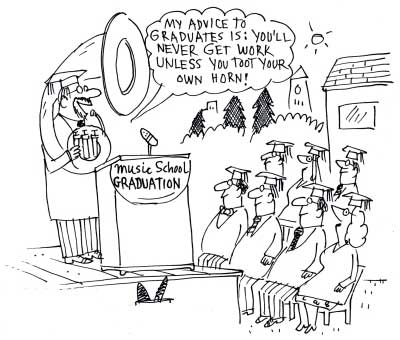对英国人而言,无论你私底下对自己有多么满意,也不应该说I'm good……

By Anthony Daniels
戴乐竹 选注
On a recent short flight, an air hostess offered a snack[1] to an enormously fat American lady sitting next to me. “No, thank you,” she said, “I’m good.” If the question of what people eat is a moral one, she looked as if she hadn’t always been good, to put it mildly.[2]
Nowadays, when you ask people how they are, they are as likely to tell you that they are good as that they are well. It is as if you were inquiring after their moral rather than their bodily condition.
Of course, the two have seldom been more closely linked, health, diet and safety having replaced faith, hope and charity as the desiderata of the virtuous life.[3] Since so many modern illnesses are the consequence of overindulgence[4] in one thing or another, an inquiry after health is indeed a moral one. Oh Lord, we have eaten those things that we ought not to have eaten, and not eaten those things that we ought to have eaten.
To English ears of a certain age, however, it still sounds strange for someone to say, in any sense whatever, that he is good. Surely, that is for someone else to say? One doesn’t blow one’s own trumpet[5], however pleased with oneself one secretly is.
“I’m good”—so often heard these days—has a complacent and almost boastful ring,[6] very different from that of “I’m well, thank you.” No one could say, “I’m good, thanks be to God[7].” No one is good by mere luck or good fortune, let alone by divine mercy.[8]
People who are good listen, often with rapt[9] attention, to their bodies. Their body tells them what to do and they do it. Alas, virtue is not always rewarded and, the perfect regimen notwithstanding, illness sometimes—indeed always, in the long-term—supervenes.[10] When that happens, do people say, “I’m bad”?
Not often. They revert to the adverbial—not well.[11] At most they say that they are feeling bad, which is not the same as being bad, of course. There is an asymmetry[12] in our moral assessment of ourselves: goodness comes from within, badness from without.[13] People, as a general rule, don’t ask for an explanation of their good behaviour: only their bad is mysterious to them. In many years of medical practice, no one has ever asked me, “Do you think it could be my childhood that makes me so nice, doctor?”
If the fat lady on the plane had wanted the snack, would she have said, “Yes please, I’m bad.”
Vocabulary
1. snack: 点心,小吃。
2. moral: 道德上的,精神上的;put it mildly: 说得婉转些。
3. charity: 慈善;desiderata: 〈拉〉迫切需要得到之物,是desideratum的复数形式。
4. overindulgence: 过分沉溺于某事(尤指吃喝)。
5. blow one’s own trumpet: 自我吹嘘,自吹自擂。
6. complacent: 自鸣得意的;boastful: 自夸的,傲慢的;ring: 特性,特质。
7. thanks be to God: 感谢上帝。
8. divine: 神的;mercy: 怜悯,仁慈。
9. rapt: 全神贯注的,入迷的。
10. 哎,有德行并非总会得到报偿,尽管践行了最完美的养生法,疾病有时却——长期来看的确总是会——意外出现。regimen: 生活规则,养生法;supervene: 接着发生。
11. revert to: 回归;adverbial: 副词。
12. asymmetry: 不对称。
13. ……好是一种内在品质,而坏与外界事物相关。without: adv. 在外面,在外部。
(来源:英语学习杂志)